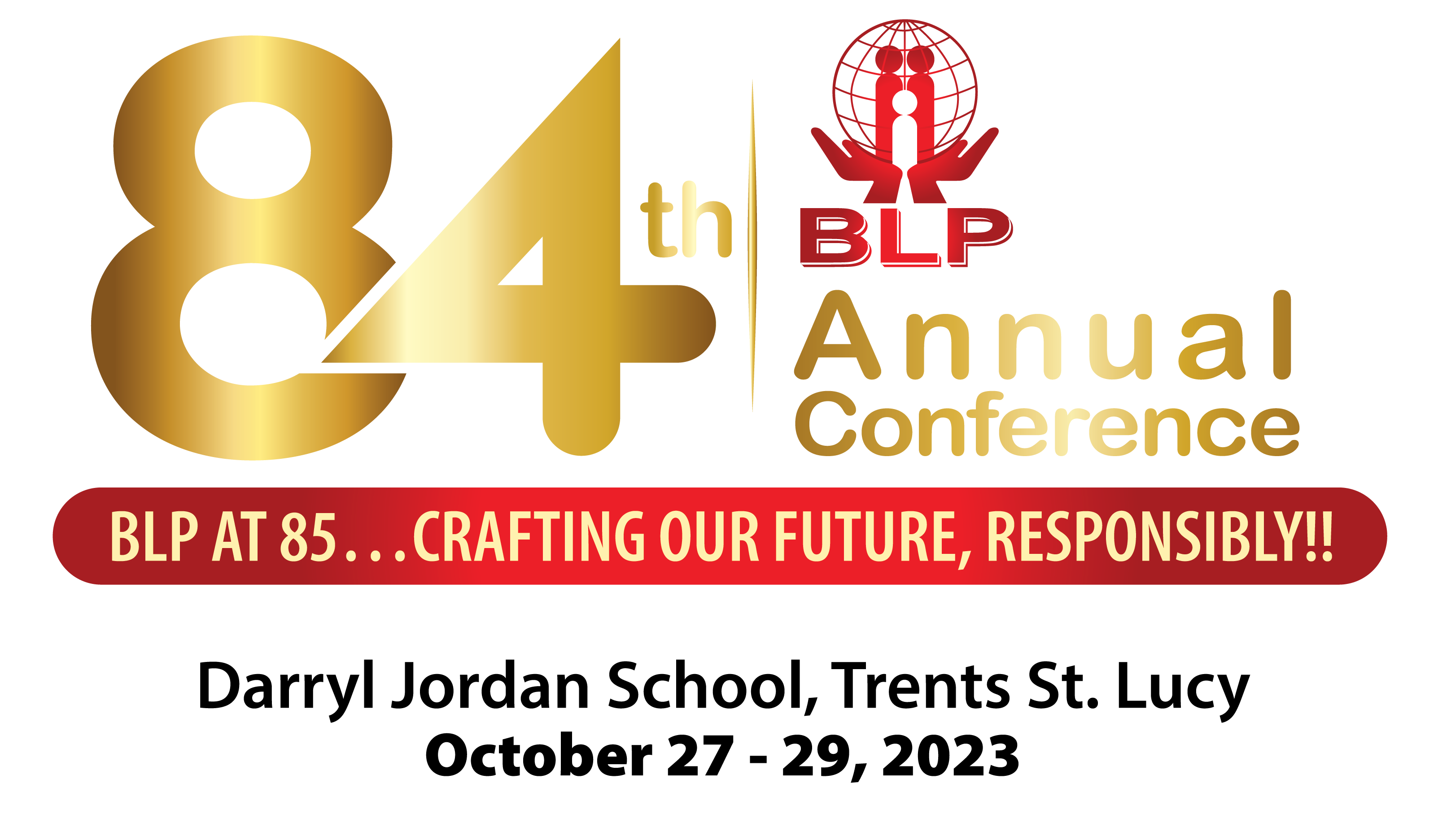Originators of EVERY seismic change










In a sentence, the legacy of our Barbados Labour Party, (BLP), is the birthright of Barbados.
Our Party has not only been the formative institution of a modern Barbadian nation, but it determined a vision from inception which has transcended the times and all political parties and, moreover, has been the change agent at every transformative juncture of our progressive history.
That new and enlightened phase of our history emerged out of the oppressive 1930s, when Barbados was, to all intents and purposes still a slave society, leading to the 1937 riots.
It was a period of appalling conditions. Wages were low, there were very few economic opportunities and there was no legislation to safeguard the rights of workers. Moreover, only a very small percentage of the population had the right to vote and there was an income qualification, before a person could exercise that right.
A meeting on 31 March, 1938 to form a political party would see the initial seismic shifting of Barbados to take note of and include the majority of its citizens.
Held at the home of Mr. James Martineau in Bay Street, St. Michael – which still stands – the first meeting elected Chrissie Brathwaite as Chairman and Grantley Adams, who was out of the island on legal business, Vice-Chairman. Those present were C.A. Brathwaite, J.A. Martineau, Dr. H.G. Cummins, Dr. Philip Payne, W.A. Crawford, C. Edwy Talma and Hope Stevens, a Kittitian living in New York City.
And so Barbados’ first political institution – our Barbados Labour Party, (BLP) – was formed with Grantley Adams, later Sir – now the Rt. Excellent, National Hero – shortly after elected its leader.
Barbados would not be the same.
Our Party set a vision for the times – and all times.
At its inaugural meeting, the objectives outlined were providing political expression for Barbadians, enabling them to participate in the democratic process, promoting social and economic development of people, to improve industrial relations, to provide leadership for the working class and cooperation with similar organizations in the Caribbean.
These objectives have in the main bound the country together to this day with all political parties adhering through the years to the philosophical concepts embodied in the objectives, resulting in a country lauded for its democracy, social provisions and economic development.
But at the end of the 1930s, it is doubtful anyone would have predicted the success of the BLP and the country. The founding fathers, however, moved purposefully and quickly established a new dawn for Barbadians.
Through legislation, structures, programmes and projects, Grantley Adams inexorably moved Barbados from serfdom and an agrarian society to one of democracy and economic diversification.
By 1941, the Barbados Workers Union, (BWU), was formed to fight for the protection of workers’ rights. The first General-Secretary was Hugh Springer, now Rt. Excellent Sir Hugh Springer, National Hero.
In 1950, the most significant piece of legislation at the heart of the transformation of Barbados, the Representation of the People Act, which gave all adult Barbadians the right to vote, was passed.
There was a raft of legislation to improve the lot of workers, including the important Workmen’s Compensation Act, the Wages Board Act and the Labour Department Act.
There was the development of roads and housing, reform of the education system to include the establishment of Erdiston Teachers’ Training College and free secondary education through the building of secondary modern schools.
Major projects included the airport, harbour, health centres and the Queen Elizabeth Hospital. The Tourist Board and Development Board were established to catapult the diversification of our country.
Our Party was also at the introduction of self-government and Cabinet government, in 1954, and from early exuded far-reaching thinking that extended to having the first female, Ermy Bourne – now Dame – elected to Parliament in 1951.
The mindset of regional strength led to Grantley Adams becoming the first and only Prime Minister, in 1958, of the West Indies Federation. Dr. Hugh Gordon Cummins was then elected Premier.
That the Federation was short-lived, ending in 1962, does not diminish the evolved thinking of the BLP on regional integration.
In fact, successive governments have followed on the transcendental foundation of the Grantley Adams era of providing a better life for Barbadians, modernising the country, being advanced on matters such as women’s issues and leading regionally and internationally.
The Grantley Adams era ended in 1961, when the Democratic Labour Party, (DLP), headed by former BLP member Errol Barrow (now Rt. Excellent Errol Barrow, National Hero), won the election. Since then, our Party has formed the government of Barbados for 24 years, with phenomenal success that is still a marvel.
Unarguably, the second distinctive phase of Barbados’ development occurred in the very short space of ten years, between 1976-86, when the BLP was led by JMGM “Tom” Adams, Sir Grantley’s son, until his untimely death in 1985, when Harold Bernard “Bree” St. John took over as Prime Minister.
If Sir Grantley and his teams fixed the foundation for a new Barbados, Tom Adams constructed the house on it in which Barbadians still live.
That period shifted Barbados completely from an agrarian society to a services oriented one, with tourism and financial services established and introduced, respectively, as key economic drivers.
The same combination of ameliorating lives, necessary projects to spearhead economic growth, social and health protections and leadership in the Caribbean and the world was embraced. To this was added a new world vision of Barbados as a developed society, one realised with stupendous results.
A new network of roads was delivered, the airport and seaport modernised, polyclinics were built, the Warrens town centre conceptulised, Harrison’s Cave developed, the National Cultural Foundation introduced and there was unprecedented housing projects.
This period will, however, be forever regarded as singular for its government, dubbed “the Great Combination”, work on justice reform, seminal work on the Status of Women leading to the further advancement of women and the removal of the concept of illegitimacy with the Status of Reform Act.
It also saw the first female Cabinet Minister, Billie, now Dame Billie, Miller.
Other far-reaching developments included the fostering of the credit union movement, promotion of solar energy and introduction of ice boats which tremendously boosted the fishing industry.
Furthermore, the Tom Adams years produced what many feel is the most revolutionary act of government, barring the right to vote – the Plantation Tenantries Freehold Act which provided for thousands to own the land on which they and their forefathers lived, but until then were unable to even improve their circumstances.
Apart from the cultural impact of land ownership, the Act unleashed new social and economic development that is still ongoing, modernising villages across Barbados.
This period also established Barbados as the preeminent small country in the world and reaffirm its leadership position in the region when the Government took the lead in the military intervention in Grenada and establishing the Regional Security System.
Our Party suffered a huge defeat in 1986, but the three surviving Members of Parliament, leader Henry (now Sir Henry) Forde, David (now Sir David) Simmons and Owen Arthur displayed a tenacity and dedication to task that was more than a match for the Government, which had 24 members.
Losing the official Opposition title, after a breakaway group from the then ruling DLP formed the National Democratic Party, (NDP), did nothing to diminish the impact of the BLP members.
The years 1994-2008, when the BLP formed the Government once more, further entrenched the DNA of our Party in changing lives and advancing our nation.
Led by Owen Arthur, Barbados enjoyed unprecedented employment, economic growth and massive development projects. The country also benefitted from social programmes under the Rural and Urban Development Commissions.
A record number of women were candidates and assumed Cabinet positions, with parallel progress in the Civil Service and private sector.
There was a focus on youth development and a shift to technology education with the introduction of EDUTECH and renewal of community centres to resource centres equipped with computers.
Additionally, the Party’s genetic centre of regionalism came alive with the spearheading of new Caribbean integration initiatives and an international profile in all respects that led then United Nations Secretary-General Kofi Annan to remark that the country was “punching above its weight.”
The range of achievements led to Barbados becoming the No.1 developing country in the world, according to the United Nations Human Development Index.
During this period, the BLP secured the largest victory to date in elective politics, a 26-2 romp in 1999.
With its matchless record, it should be no surprise that four of Barbados’ ten national heroes came directly from the bosom of our Party. These are the Right Excellencies Sir Grantley Adams and Errol Barrow, the first two leaders of Barbados’ main political parties, and Sir Hugh Springer and Sir Frank Walcott, the first two General Secretaries of the BWU.
Our Party has also been distinguished by its leadership. We have provided five government leaders since the development of the political institution by our Party:
1938 – 1958
Rt. Excellent
Sir Grantley Adams
The Rt. Excellent Sir Grantley Hubert Adams, National Hero, was a founder of the BLP and its first leader. He was Barbados’ first Premier and the only Prime Minister of the West Indies Federation, from 1958-62. He left Parliament in 1970. He was also President of the BWU from 1941-54. He presided over Barbados’ first steps towards democracy and modernity. He died in 1971.
1958 – 1961
Dr. Hugh Gordon Cummins
Dr. Hugh Gordon Cummins was a medical doctor and an early member of the BLP. He was one of the first MPs in 1950, became a member of the Executive Committee in 1951 and a Minister in 1954, with the introduction of Ministerial government. He became Premier in 1958. His major success was the repeal of the Located Labourers Act. He died in 1970.
1976 – 1985
Rt. Hon. JMGM “Tom” Adams
John Michael Geoffrey Manningham “Tom” Adams was the only child of Sir Grantley and Barbados’ second Prime Minister. Known for his prodigious intellect and political skills, he led Barbados on a remarkable path of achievement, the benefits of which have not diminished over decades. In fact, post-Independence, his nine years in government are regarded as the most transformative.
1985 – 1986
Hon. Harold Bernard “Bree” St. John
Bernard “Bree” St. John, later Sir, became Barbados third Prime Minister on the sudden death of Tom Adams. A lawyer, he was party leader from 1970-71 and became Deputy Prime Minister in 1976. He made an immense contribution to the development of tourism, trade and business growth and treaty negotiations. He died in 2004.
1994 – 2008
Rt. Hon. Owen Seymour Arthur
Owen Arthur became BLP leader in 1993 and a year later became Barbados’ fifth Prime Minister – and to date its longest lasting. His period was marked by sound economic management and solid economic and social gains as well as social and cultural development. He has represented the constituency of St. Peter since 1984. Having resigned, he is no longer a member of our Party.
The tradition of leadership continues with Mia Amor Mottley, who was elected leader after our Party lost the 2008 elections, serving until 2010 She was re-elected political leader in 2013.
Mia has been in politics since 1990, serving first in the Senate or Upper House before becoming an MP in 1994. She has held several positions, including Attorney-General, Minister of Education and Culture and Deputy Prime Minister.
Our Party also owes a great debt to all our members and supporters who have staunchly adhered to its philosophy and upheld its ideals.
We will continue to strengthen the development of our people, work for social and economic balance and enfranchisement and strive to position Barbados as the leading country it has been under previous BLP administrations.

